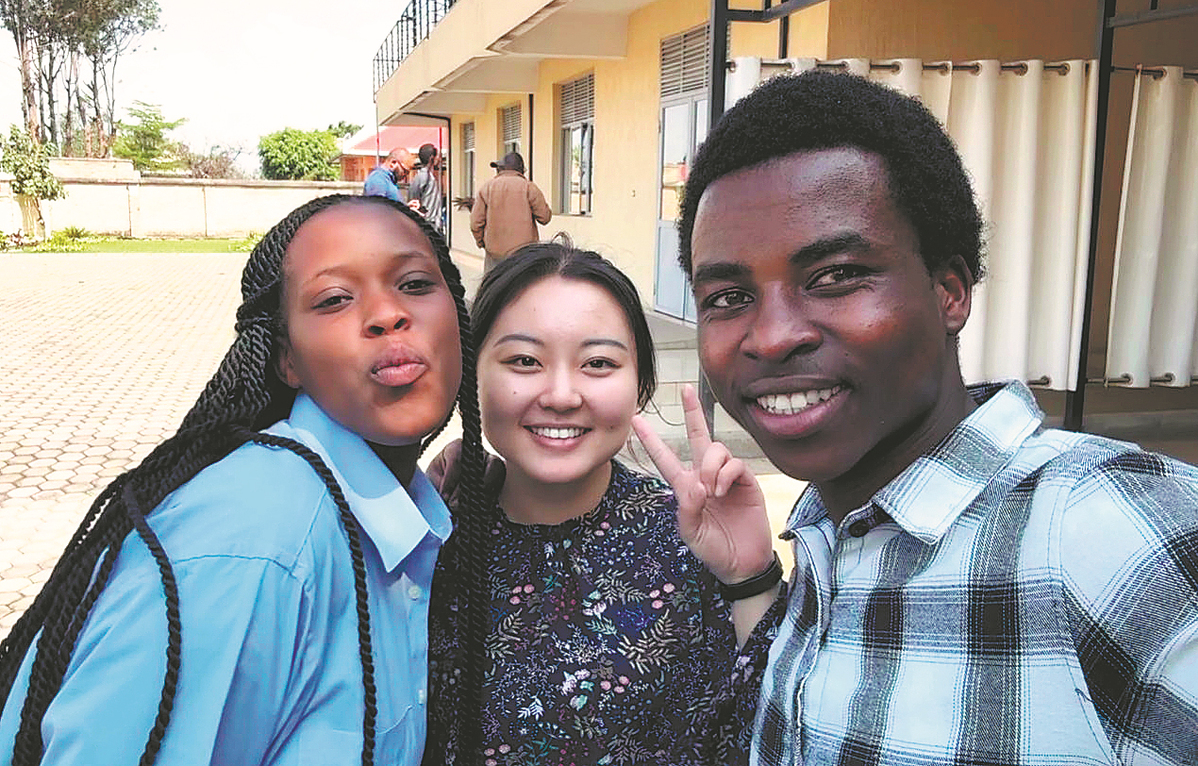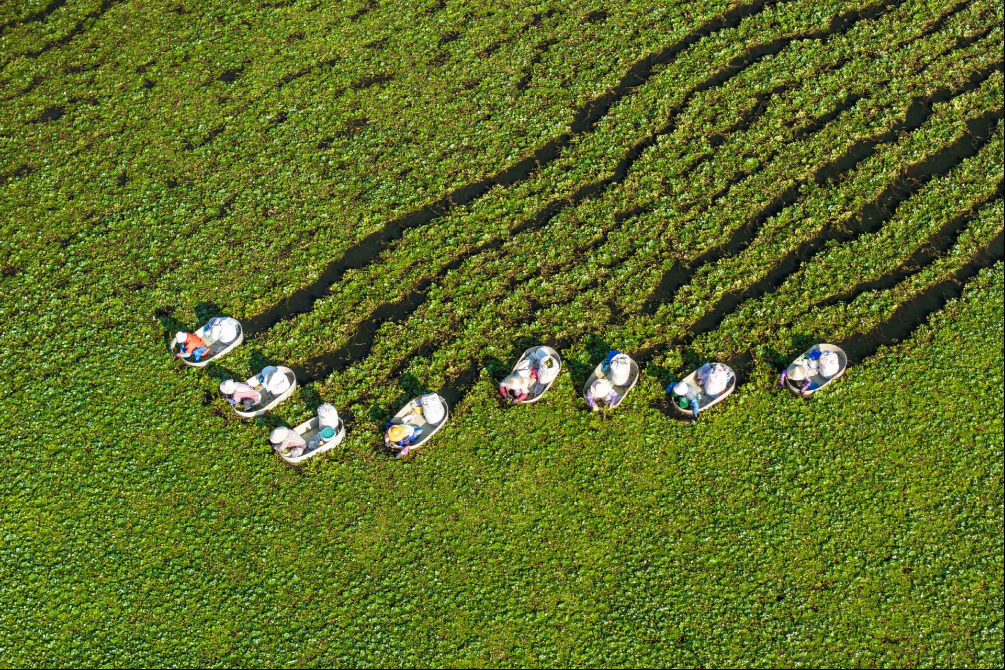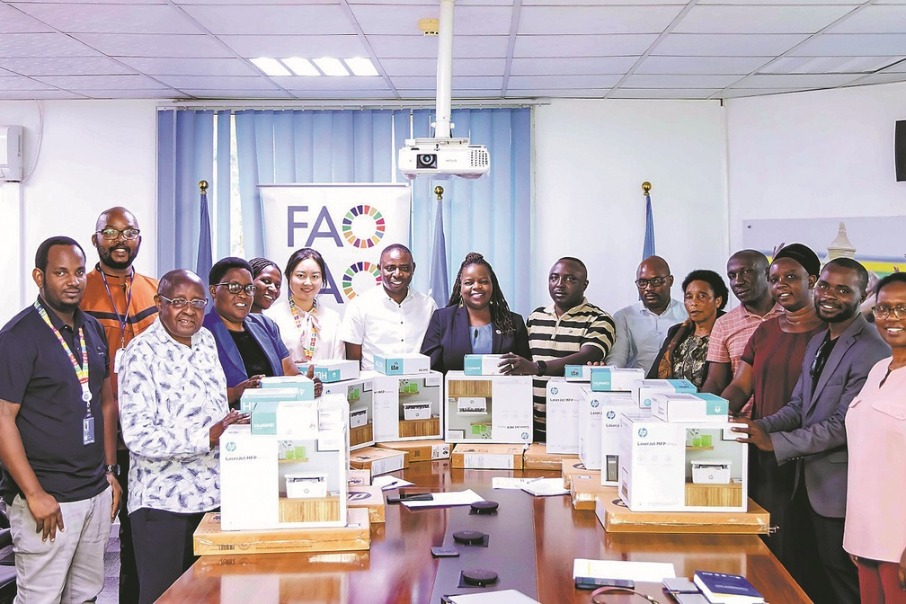Young UN trailblazers carving nation's path in world affairs
Number of Chinese working in organization more than doubles in past 15 years


From learning to sharing
Beyond its financial and personnel contributions, China is increasingly offering policy wisdom and practical experience to the UN rooted in its unique development path.
During the "Shanghai Cooperation Organization Plus" Meeting on Sept 1, China proposed the Global Governance Initiative, calling on nations to uphold sovereign equality, abide by the international rule of law, practice multilateralism, advocate a people-centered approach and focus on taking concrete actions.
UN Secretary-General Antonio Guterres, who was in China to attend the SCO Summit 2025, welcomed the initiative and the fact that it is anchored in multilateralism.
He also spoke highly of the role that China plays in supporting the work of the UN. In his meeting with President Xi Jinping on Aug 30, Guterres said that China has made significant contributions to safeguarding international law and ensuring the international rule of law, and has been a cornerstone of multilateralism.
"In the early 1980s, the role that the UN played in China was completely different from what it is today. Decades ago, China was largely a recipient of UN aid and expertise. Today, China has become highly advanced in many fields," Li of the IOM said, citing the example of China's advanced experience in immigration management.
Li noted that during her visits to Shanghai and Guangzhou, Guangdong province, she was impressed by their excellent work in integrating foreign immigrants.
Shanghai, for instance, has set up one-stop service centers where foreigners can handle all their paperwork in a single visit. In Guangzhou, local authorities have engaged African businesspeople as community volunteers, successfully leveraging their cultural familiarity to mediate disputes within the African community.
"Many developing countries also need China's technologies like automated border control and e-visas at airports to address migration issues," Li said.
Zhang said that during her internship in Rwanda, she witnessed China's growing role in international cooperation. "China is engaged in agricultural South-South and triangular cooperation in many African countries. For example, China's fish-rice symbiosis project in Uganda is helping to increase local agricultural output," she said.
"In Rwanda, there is a Juncao technology center where Chinese experts are teaching local farmers how to cultivate Juncao mushrooms. They then process the mushrooms into various products, increasing their added value. It has been very beneficial to the local economy," Zhang said.
During her 11-month internship, Zhang has been proactively working to promote a proposal that leverages Chinese expertise in Rwanda. So far, she has also initiated a project proposal that has already received endorsement from the Chinese Embassy in Rwanda.
"The next step is to formally submit the relevant documents. Bit by bit, I look forward to the day when this proposal can bring tangible improvements to the livelihoods of smallholder farmers in Rwanda and strengthen the country's agricultural resilience," she said. "To me, this is what growth means — my personal journey of progress, echoing China's broader path of development."
- China Coast Guard fleet patrol waters off Diaoyu Islands
- Remains of 30 Chinese martyrs in Korean War returned to homeland from ROK
- Autumn harvest in full swing across China
- Belt and Road summit galvanizes grit for shaping shared future
- Judges call for joint oversight of AI expansion
- New horned toad species discovered in East China




































